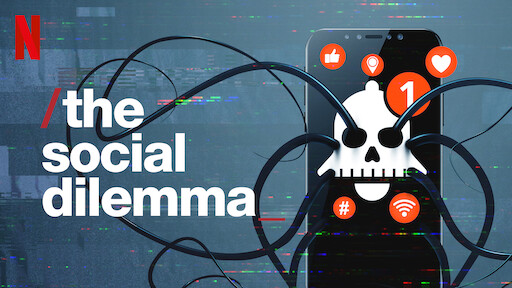
The key thing in creating a blog is to discuss diverse but current topics. What if I tell you that this post will cover maybe even the most intriguing topic of all? A topic that has planted its roots all around in our society and affects our lives in many different ways. Maybe you guessed it already correctly, but this post will cover the topic of Information technology and its consequences on society, and in particular social media. In short, information technologies include techniques for the fast processing of information, the use of statistical and mathematical models for decision-making, and the simulation of higher-order thinking through computer programs (Leavitt & Whisler, 1958).
Over the years nothing has developed as fast as Information technology programs. Especially now that we are situated in the middle of a pandemic, humanity made use of information technology more than ever before (McKinsey, 2020). For example, due to these rapid developments, Social Media facilitated the ever more sharing of ideas, thoughts, and information through the building of virtual networks and communities. Overall, I believe that advances in information technology have enabled excellent access to everyday activities that would have previously been impossible due to COVID-19 mitigation efforts.
Even though social media enabled to some form of connection with friends and family all over the world during the pandemic, there is mounting evidence that social media also leads to negative effects. In this case, addiction. Applications such as WhatsApp, YouTube, Facebook, Snapchat, and Instagram compel to you through their algorithms. These algorithms try to keep you on the platform for as long as possible. It accomplishes this by gathering data about you and then recommending specific content for you to watch based on that data. Their main reason for this is to show more ads to you, which generates revenue. Assume you are watching finance-related YouTube videos; it will automatically recommend new finance-related videos to you, which will easily keep you watching for at least another 45 minutes to an hour. But far more important, it gains new personal data every split-second. Netflix’s documentary ‘The Social Dilemma’ shows how social media and its algorithmic-based decisions nurture addiction, manipulate people and governments, and spread conspiracy theories and fake information. More specifically, it contributes to increased polarization within our society. To clarify, we increasingly live-in online filter bubbles that only expose us to the ideas we already agree with, or likes and shares in Facebook terms. This is consistent with the literature on confirmation bias, showing that we are most likely to agree with ideas that align with our pre-existing beliefs. Altogether, we therefore believe that pure algorithmic decisions lead to rather unethical consequences.
Fortunately, there are ways to combat social media addiction. Firstly, more people must become aware of the problematic, and unethical nature of how social media works. You can contribute to this process by spreading the “Social Dilemma” documentary to as many people as possible. Secondly, social media companies should be pressured more to change their algorithms, which are partly meant to get people addicted to their application. You could for instance participate by signing Accountable Tech’s petition. Lastly, you could restart the way you utilize social media yourself whenever you experience any forms of addiction. For example, you could try to avoid watching the recommended videos on YouTube. Also, it could be very helpful to have specific social media free-moments.
References
Leavitt, J.H., & Whisler, L. T. (19580 Management in the 1980’s. Harvard Business Review.
McKinsey & Comany. (2020). How COVID-19 has pushed companies over the technology
tipping point – and transformed business forever. Retrieved from https://www.mckinsey.com/business-functions/strategy-and-corporate-finance/our-insights/how-covid-19-has-pushed-companies-over-the-technology-tipping-point-and-transformed-business-forever

You made some very interesting points in this blog post! I think it’s good that the way these applications work is slowly but steadily becoming more general knowledge. This makes it easier to realise what’s happening to you and to counter these addiction provoking algorithms where necessary. I think the Netflix documentary has definitely sped up this process and I even heard of some people who decided to delete their social media accounts after watching this documentary. It’s a nice touch that apart from just introducing the problem, you also gave some solutions in the last paragraph.